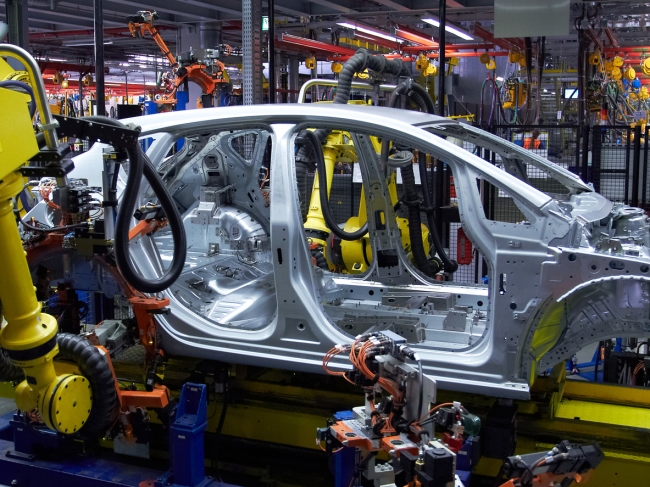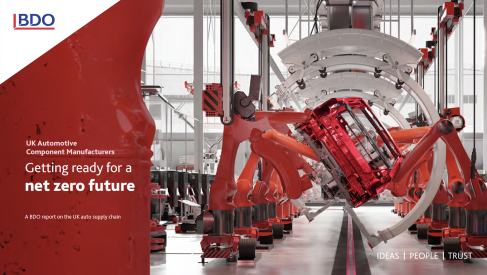3 minute read • published in partnership with BDO
Automotive suppliers view net zero as short-term threat according to BDO report
More than two thirds of UK automotive component makers (68%) see the transition to net zero as a short-term threat, but almost all (93%) recognise that meeting the challenge of decarbonisation will be vital for their long-term business prospects.
The findings come from a BDO poll of C-suite executives at 100 UK automotive component manufacturing companies with turnovers of more than £10m. Faced with the dual challenge of supporting the global transition to low-carbon modes of transport while also having to meet their own net zero targets, component manufacturers do appear to be taking their responsibilities seriously.
Almost all respondents (96%) said they have a focus on net zero in their business strategy, with 88% claiming that they expect to reach net zero by 2030 or before. 80% said they had begun implementation of their net zero plans, with a further 16% saying they were yet to start implementing their plans.
Manufacturing businesses wanting to form part of a net zero supply chain will ultimately need to control and report on emissions according to three greenhouse gas protocol scopes. For now, many appear to be prioritising Scopes 1 and 2, with only 17% saying they are focusing on Scope 3 emissions that are connected to the value chain.

BDO’s automotive report highlights that 96% of automotive suppliers have a focus on net zero in their business strategy but over two thirds see the transition as a short-term threat / Picture: Getty/iStock
Pressure from investors, the desire to gain strategic advantage and the importance of attracting and retaining customers were among the most popular reasons for implementing net zero measures. The transition to net zero also looks set to be a major driver for innovation, with 98% of the sample saying it would lead to new research and development. The bulk of this investment is expected to come from developing new (71%) or updating current (57%) products and services for the EV market.
Stephen Cooney, head of automotive at BDO, said: “The phasing out of internal combustion engines and the rise of alternative propulsion methods is placing huge pressures on auto suppliers to innovate and adapt at speed. On top of this, they are having to decarbonise their own operations to meet net zero targets. It’s therefore no great surprise that so many respondents to our survey view these dual challenges as a threat to their business. That said, there is a high degree of recognition of the importance of the net zero agenda to long-term business prospects – and a firm commitment to face these challenges head on – although some are more advanced in their journey than others.
“While many auto suppliers appear to be taking steps to address the carbon emissions they control, they face a considerable challenge in measuring Scope 3 emissions connected to their own value chain. This will have to be an area of focus going forward. When Scope 3 emissions are accurately measured it is likely that the efforts and costs to achieve net zero emissions will increase. The uncertain outlook for the industry is also compounding the problem for the UK’s automotive component manufacturers. The future adoption rate for EVs is unclear and growing competition from Chinese OEMs is proving a real headache for European carmakers. Understandably, this is likely to have a knock-on effect on the supply chain. UK Government support through implementation of the Carbon Border Adjustment Mechanism and other actions are required to create a level playing field and preserve the long-term future of the industry.”

